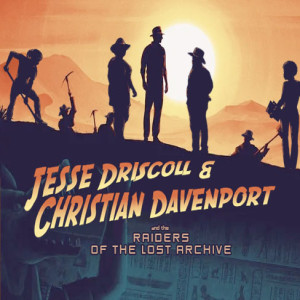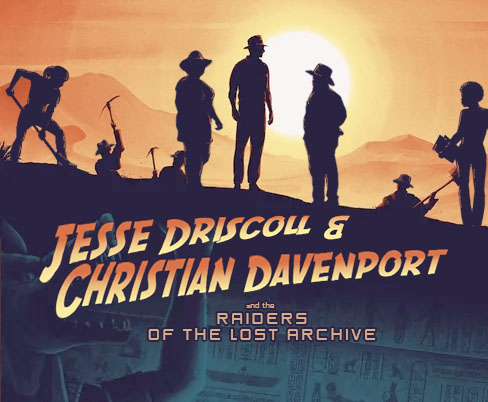Episodes

Friday Dec 05, 2025
Episode 28: Dana El Kurd
Friday Dec 05, 2025
Friday Dec 05, 2025
Dana El Kurd (University of Richmond) reflects on the personal and ethical dimensions of a research journey that is also a journey home — in her case, to Palestine. Her candid insights on foreign-assisted state-building, doing fieldwork with limited resources, and navigating data collection in authoritarian environments illuminate how differently the field can treat different researchers. She asks whether scholars trying to understand public opinion under these constraints can — or even should — strive for “neutrality.” An inspiring conversation for junior scholars who think they’re the only ones improvising methods as they go.

Friday Oct 17, 2025
Episode 27: Michael Kofman
Friday Oct 17, 2025
Friday Oct 17, 2025
How does one study war up close without acquiring dangerous habits of mind? How is the professional path of a military analyst different from a ‘pure’ academic path - and what do cloistered academics who never work in the government miss? Michael Kofman (Carnegie) shares insight on his fieldwork experiences.

Friday Oct 03, 2025
Episode 26: Rose McDermott
Friday Oct 03, 2025
Friday Oct 03, 2025
Our podcast’s first bona fide political psychologist! Rose McDermott (Brown) has expertise spanning subjects from pharmacology to polygyny. In this lively episode we cover everything from male club behavior in security studies to the challenges of navigating graduate school if statistics aren’t your thing. Even nuclear war is easier to handle if you can laugh at it a little.

Friday Sep 26, 2025
Episode 25: Kirsten Weld
Friday Sep 26, 2025
Friday Sep 26, 2025

Friday Sep 12, 2025
Episode 24: Mark Beissinger
Friday Sep 12, 2025
Friday Sep 12, 2025
Mark Beissinger (Princeton) recalls fieldwork in the Soviet Union, the transition to a “post-Soviet” experience, and speculates about the future of fieldwork in Russia as U.S.-Russia relations return to something resembling a new Cold War. A tireless mentor to dozens of comparativists, he reflects on his career and our shared ethical responsibility as archivists.

Thursday May 02, 2024
Episode 23 -- Roger Petersen
Thursday May 02, 2024
Thursday May 02, 2024
How many civil wars were there in Iraq after the U.S. invasion – and how did they really end? Roger Petersen of MIT describes a life of immersion, from road construction to honchoing a network of scholar-soldiers as they unspooled the complexity of a decade of war in Iraq. How does one get honest answers out of warlords in situations where they (and their entourage) have all the power? Is it possible to be a neutral observer in an ongoing war? Can ethnographicsensibility be taught -- and if not, as the profession incentivizes students to become technically-oriented in our training sequences, what is lost? Provocative, funny, blunt, and always thoughtful, Petersen's slow-rolled delivery is calibrated to get you wondering what you might learn if you got serious about active listening.

Monday Oct 16, 2023
Episode 22 - Wendy Pearlman
Monday Oct 16, 2023
Monday Oct 16, 2023
Wendy Pearlman is Professor of Political Science at Northwestern University, where she is Crown Professor of Middle East Studies. She studies the comparative politics of the Middle East, social movements, and forced migration, and has conducted with more than 500 displaced Syrians since 2012. In this podcast we discuss how this data was curated ("midwife-ing") to create the award-winning We Crossed A Bridge and It Trembled: Voices from Syria (HarperCollins, 2017).

Monday Jun 12, 2023
Episode 21 - Kristine Eck
Monday Jun 12, 2023
Monday Jun 12, 2023
Kristine Eck (Uppsala University) discusses the challenges of working with contemporary and historical police archives. For quantitative social scientists, how does "the data generation process" introduce measurement bias into the processes that we are actually describing when we employ data generated by the state for counterinsurgency? How do ongoing state efforts to digitize archives aid and hinder political scientists and data scientists trying to quantify human rights abuses? What are the citation norms for private correspondence by public figures who were in command decision roles during episodes of violence? A frank, eye-opening discussion on how scholars access and use state-generated datasets on repression, with comparative cases ranging from the Malayan Emergency to Israel and from contemporary OECD countries to Nepal.

Friday May 19, 2023
Episode 20 - Ana Bracic
Friday May 19, 2023
Friday May 19, 2023
Ana Bracic (Michigan State University) discusses positionality, entree, and a variety of ethical considerations that informed her work with a highly-vulnerable population in Central Europe. The candid discussion of how her project on the Roma evolved from an idealized, perfect "magical dataset" ("something as ridiculous as a time-series cross-section dataset on some sort of dimension of Roma exclusion, and it didn't matter what it was, so long as it was the same one across all these observations...") to her actual project. How was her mother an asset? What happens if you come home from the field with data that, once analyzed, is shown to be completely unhelpful for your job market paper? A can't miss episode for an aspiring junior scholar.

Friday May 05, 2023
Episode 19 - Margaret Levi
Friday May 05, 2023
Friday May 05, 2023
The author of Rule and Revenue, In the Interests of Others, Consent, Dissent, and Patriotism, and Analytic Narratives describes some of her lesser-known her early-career work: police ride-alongs in Detroit after the social upheavals of the 1960s, interviewing Jimmy Hoffa, and day-drinking with scary police officers (before they went on duty). A wide-ranging discussion of triangulating data to tell a compelling story, how and when to alter theories in the face of new data, and numerous inspiring examples of tenacity in the face of adversity dealing with hard-to-access archives. With generous answers, always more cogent and coherent than the questions, this is truly a can't miss episode.

